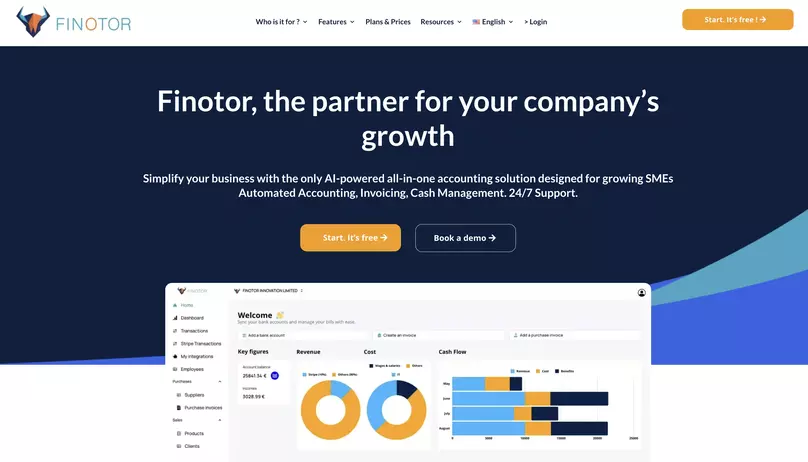Contents
Defining Fiscal Quarters and Their Importance
Fiscal quarters are integral components of the financial calendar, serving as the cornerstone for corporate reporting, budgeting, and strategic planning. Comprising one-fourth of a company’s fiscal year, each quarter reflects a three-month period used to gauge performance and make necessary adjustments. Understanding fiscal quarters is essential for businesses to maintain compliance with regulatory requirements and to provide stakeholders with timely insights into the company’s financial health. For enterprises like Finotor, which strives to streamline financial management, having a clear grasp of these periods enables the development of advanced tools that align with the accounting cycles of businesses.
The Specifics of Q2: Duration and Key Characteristics
The second quarter (Q2) typically spans from April 1st to June 30th, marking a critical time for businesses to evaluate the outcome of their Q1 activities and adjust their strategies accordingly. Q2 is characterized by an increased focus on growth trajectories, especially after the yearly kick-off in Q1. It’s a period that often demands rigorous analysis and proactive planning. Businesses may refer to resources like key dates and durations for fiscal quarters to stay ahead of reporting deadlines and identify strategic opportunities within Q2.
How Q2 Fits into Annual Business Cycles
Q2 is more than just a checkpoint; it’s a pivotal phase in the annual business cycle that can significantly influence the direction for the remainder of the fiscal year. This quarter provides an opportunity for businesses to review year-to-date performance against annual goals and make tactical adjustments where needed. For organizations leveraging Finotor’s comprehensive financial management solution, Q2 is an ideal time to harness the power of AI-driven analytics and machine learning to refine financial strategies and ensure alignment with overall business objectives.
Key Dates in Q2: Mark Your Calendars
The Start of Q2: Transitioning from Q1
The commencement of Q2 marks a transitional period for businesses as they move from the groundwork laid in Q1 to the strategic execution phase. It’s crucial for companies to reassess their objectives, ensuring they’re on track to meet their targets. Finotor’s platform, with its seamless integration into banking systems and platforms like Stripe and WooCommerce, can play a vital role in this transition by automating financial tasks and providing real-time insights into financial performance.
Mid-Q2 Checkpoints: Progress Evaluation
Midway through Q2, it’s imperative for businesses to conduct a thorough evaluation of their progress. This includes assessing financial reports, tracking KPIs, and adjusting forecasts as necessary. Finotor’s AI capabilities allow for an in-depth analysis of financial data, facilitating informed decision-making and timely responses to market dynamics.
Q2 Wrap-Up: Preparing for Q3
As Q2 draws to a close, attention shifts towards preparing for Q3. It’s a critical juncture for finalizing reports, completing tax obligations, and setting the stage for the second half of the year. Utilizing Finotor’s tools, firms can efficiently manage these tasks, with round-the-clock support to address any last-minute complications and ensure a smooth transition into the next fiscal quarter.
Impact of Q2 on Financial and Operational Planning
Financial Reporting and Tax Considerations in Q2
Financial reporting and tax planning are significant aspects of Q2, with companies needing to report quarterly earnings and estimate taxes. Accurate and timely financial reporting is crucial for investor confidence and regulatory compliance. Finotor’s robust solution aids in streamlining these processes, ensuring businesses remain on top of their fiscal responsibilities.
Operational Adjustments for the Mid-Year
Q2 often necessitates operational adjustments as businesses align their resources with their strategic goals for the year. Whether it’s scaling operations, introducing new products, or optimizing costs, Finotor’s suite of tools provides valuable insights and automation capabilities to facilitate these changes efficiently.
Using Q2 Data to Inform Business Strategy
Strategic planning benefits greatly from the analysis of Q2 data, which reflects the company’s performance at the mid-year point. This data serves as a benchmark for evaluating the effectiveness of current strategies and guiding future initiatives. Through Finotor’s advanced data analysis features, companies can leverage their Q2 results to fine-tune their business strategies, ensuring they’re poised for success in the upcoming quarters.
Maximizing Finotor’s Tools for Q2 Efficiency
Automating Financial Management with Finotor’s AI
Finotor’s AI-driven platform simplifies financial management by automating mundane tasks, allowing businesses to focus on growth and strategic planning. As Q2 unfolds, the utility of such automation becomes ever more apparent, empowering companies to handle complex financial operations with greater ease and precision.
Integrating Banking and E-commerce Platforms
The seamless integration of Finotor with banking and e-commerce platforms like Stripe and WooCommerce revolutionizes the way businesses conduct financial transactions. This connectivity not only enhances the efficiency of bank reconciliations but also provides a unified view of financial data, critical for forming accurate financial projections and strategies in Q2.
Leveraging 24/7 Support for End-of-Quarter Analysis
With Q2 culminating in strategic planning for the remainder of the year, Finotor’s 24/7 support becomes an invaluable resource for businesses. This continuous assistance ensures that any challenges encountered during the end-of-quarter analysis are swiftly addressed, granting businesses peace of mind as they prepare for a successful Q3.









